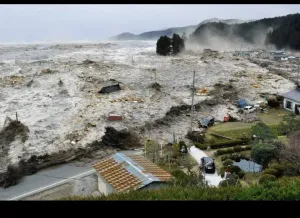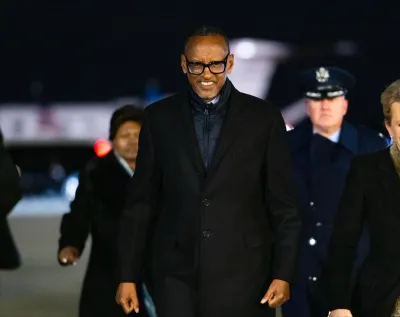
 Upcountry, it is not uncommon for media houses to pay a freelance journalist as low as UGX 2,500, for a story of up to 500 words. This underscores the disdain the profession has undertaken in the last two decades, or so. In Western countries, such work would fetch at least UGX 50,000.
Upcountry, it is not uncommon for media houses to pay a freelance journalist as low as UGX 2,500, for a story of up to 500 words. This underscores the disdain the profession has undertaken in the last two decades, or so. In Western countries, such work would fetch at least UGX 50,000.
Apart from other considerations, the major underlying factor has been the creeping influence of social media. It was not immediately evident at the time, but it is getting obvious – and worse. With the advent of digital platforms capturing the reading audience, television, radio, but especially newspapers, the news business from these traditional media, is in the bind. The takeover of this space, by Ipods, Podcasts, WhatsApp, etc., has given the use of Internet a huge problem.
Into this, Facebook, YouTube and Google, have stepped in with, what is becoming, very adverse influences, not simply on the readership, but perhaps more importantly, on the profession of journalism; and the understanding and practice of democracy. Nowhere is this more evident than on the recent debacle between these three platforms and the Australian government. And this is likely to reverberate around the world, even into the banana republics.
The problem for the journalists and their media houses is the payment for the news. Journalism has been a necessary service for informing the public (readers), and all else, about what is happening around them.
From the earlier times with news reels, the world has been going through newspapers, radio and television; and in the last 30 years or so, Internet has come to occupy a large space of this. On to this, has jumped the social media platforms that have distorted the purveying and consumption of news. The latest addition to its disparaging influence is the fake news.
Facebook, YouTube and Google are threatening to make journalism, in its present form, irrelevant. As long a s a person – the so-called bloggers – can “post” an item on the platform, it becomes “news”. And so, people like former US president, Donald Trump, can “tweet” prevalent lies on the Net; and a huge 74 million Americans “consume” it.
The upshot of this is that the majority of people globally get their news from these platforms, and their like. And because of their wide reach, they entice, even journalists, to submit their stories to these platforms.
In fact, what is common in Uganda is that; the news houses submit their reporters’ stories to theses platforms, not merely for their visibility, but it advertises them, too, without any pay. As much as it gives the reporters visibility, it still leaves their pockets and mouths dry.
The effect of this is dual. The real journalist is not paid for his article posted on the net. (the fellow who is merely blogging, is not conscious of his/her being “used” for no pay.)
Secondly,there is no advertisement revenue to be got from this. But the platform will use the advantage of the news scoop to square up for revenue.
What the news organizations here are doing, is that, they are using the news space to put their advertisements to attract revenue.
In the process, there is an annoying interference with the flow of the stories, because of tying up the news item and positioning the advertisement in a vantage location, for the reader of the story not to miss the advertisement. Obviously, this is all to get revenue.
The only advantage a journalist gets is exposure on the Net. Here, the platform, Muckrack, cannot be missed!
This is where Australia has come to step in.
Last week, the government blocked both platforms from operating; and requested them to pay for the news they place on their spaces of the journalists from the country. To some extent, Google has complied; not so Facebook. The probable reason for Facebook’s intransigence is more like blackmail. Many Australians get their news from it and YouTube. As such it rakes in revenues in advertising.
This is where the government wants to know the level of competition in the news content and advertising that would affect its own media companies; and therefore its readers.
Australian Competition and Consumer Commission (ACCC) “found an imbalance of influence”: between Facebook, Google, Youtube and other technology firms and its media.
They recommended “a code of conduct” to level the playing field.
Australia says the technology giants should “pay newsrooms a fair amount for their journalism.” It also says that supporting its own media industry and having it strong “is vital to democracy”. Facebook raises objections on this, arguing on the issue of legislation, as against regulations in the industry. Towards this it negates the need for democratic processes for a government to apply civil order.
Google, on the other hand, has complied, introducing its News Show Case, a platform intended to remove the previous imbalance. It has not only announced deals with several Australian media companies, but has agreed to deal with News Corp, a major Australian media firm on content and advertizing revenue.
Media industry watchers see this trend as “going worldwide”. And it is likely to affect copyright laws on this. Already some European Union countries, like France and Germany, have cottoned on to this. If this media conflict works as the Australians are leading the way, it could become a norm for the media industry in the world and the technology giants, to the advantage of journalism and the news purveyors,














Ikebesi Omoding
Ikebesi Omoding is the acclaimed author of a weekly column titled: From the Outside Looking In
Leave a Comment
Your email address will not be published.